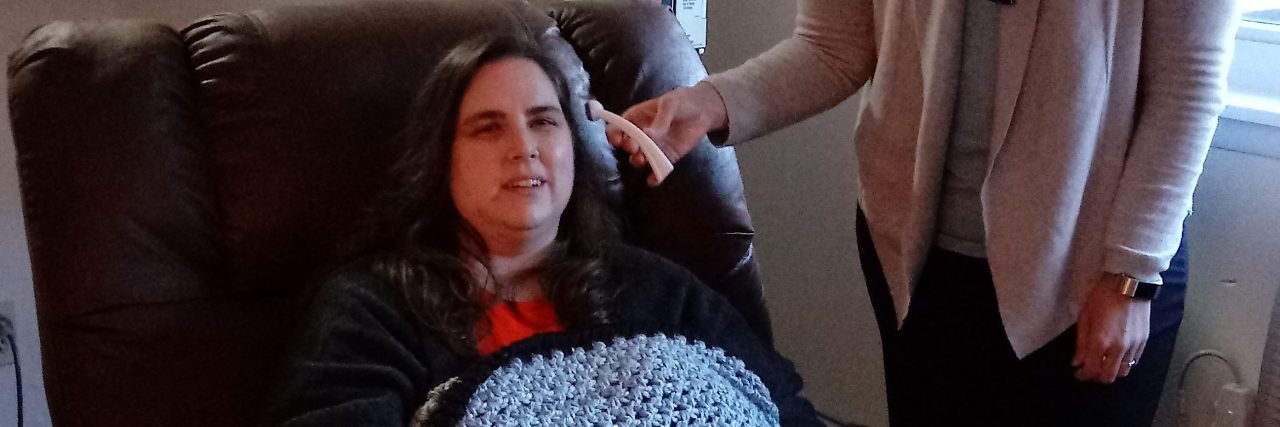I almost died at birth and had to wear metal leg braces and shoes for the first two years of my life in attempt to straighten my inward facing rigid legs and feet. Yes, everyone called them my “Forrest Gump legs” though I never could dance, move or run like him! My parents felt shame and disappointment at what was a rare neuromuscular disease disability, but not identified or understood by the doctors then. Rare was not even a concept to them. As a 2-year-old, I was in and out of hospital tents with what doctors thought was scarlet fever and with other bouts of dangerous infections. My parents discarded all pictures of me with my leg and feet braces and discarded me as well. My physical disability was something to hide and not to talk about. That was drummed into me.
As my body attempted to right itself, I realized I had to fight for my own medical attention and my own life. I remember having to beg my parents to take me to the ER or to a doctor when I was horribly ill, on the floor, too sick and stiff to push myself up. It took 22 years until the UCLA Neuromuscular Clinic diagnosed a severe variation of stiff-person syndrome (SPS) with the progression of my disease. The neurologist believed I had a form of self-correcting cerebral palsy at birth and it evolved into a type of vehement SPS.
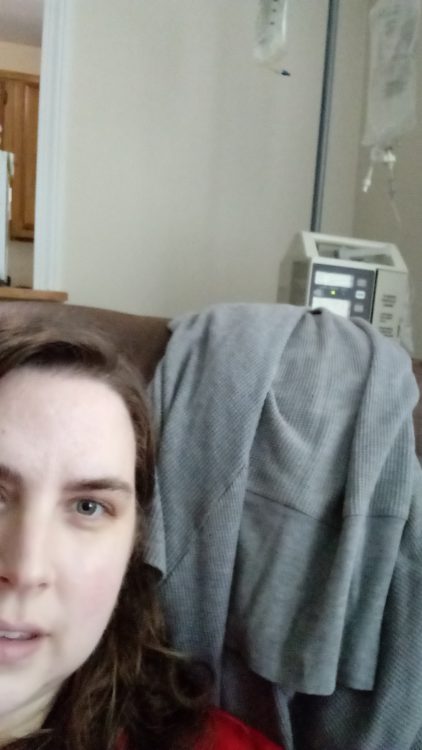
My husband and I fought furiously for access to that clinic and to afford to stay in southern California until I obtained a diagnosis with a rare neuromuscular disease specialist at long last. With my husband’s rare love and help, I could keep fighting for myself, especially after an exceptional marriage of 19 years. His unconditional support encouraged me to battle on for my own well-being and still does. I could advance in medical attention with help from our friends and, most of all, because I mattered to someone so much, with my husband’s profound true love. I was and am very fortunate for both.
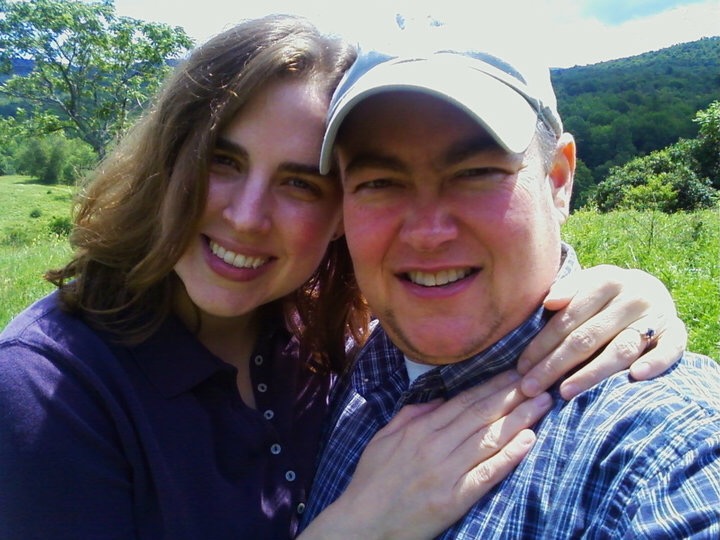
SPS is insidious and utterly debilitating. I use a wheelchair and am homebound. I am in the midst of my fourth month of five consecutive days of hefty plasma infusion treatments. This rare neuromuscular disease is too often ignored, neglected, not talked about. I’ve had to educate all of my doctors all about what SPS is, except for my current specialist whom I fought with all my might to see. I hear from rare warriors with SPS in terrible struggles telling me nobody cares, doctors have little to no knowledge of SPS and no attempted treatment really works, with the exception of the elusive $500k stem cell transplant. Many of us are low on funds due to paying gigantic medical bills to be seen and treated by the few SPS specialists in the USA. Social security told me I am not eligible for any assistance because I was not diagnosed before the age of 20. No fault of my own, of course, especially when I fought all life long for a diagnosis. My insurance denies any home care nurse so badly needed. A very common story for folks like me and completely unacceptable.
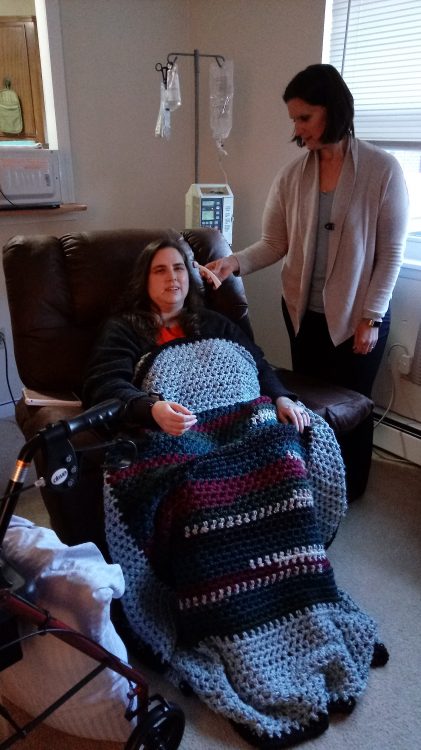
I was watching a moving scene of ABC’s “Speechless” season 2, episode 1, when J.J. tells his fierce warrior mother: “I’m wasting your time. I already hold you back enough. You were ‘it,’ organized, better when I was gone.” Maya, his devoted Mum, replies: “You taught us to be spontaneous, to drop everything when it matters. You did it the first day you came; you did it yesterday. It’s my favorite part of who we are. You make us…us.” I had to cry turned away from my husband in our darkened living room for our favorite TV show. Of all the wonderful scenes in “Speechless,” the honest, deeply loving ones between J.J. and his parents are the most profound and true for me. It’s their amazing care for one another as a family that makes a definitive positive difference for J.J. They leave me longing for that fiercely fighting mother and father, for that kind of family courage and pride. My husband and I created that together! I can’t help but wish I had that unconditional love of my own parents from infancy onward.
I admire and adore relentless rare disease parents who sacrifice anything and battle endlessly to save their children’s lives, abilities, to bring them relief, treatments, the reality of cures. I fight alongside these extraordinary parents and advocate for all rare disease patients, no matter our ages. I discovered early in life that I had to fight for myself and for all rare disease patients with all of my might. Otherwise, no rare medical research, knowledge, treatments or cures would be or will be available to us. Neither would any compassion.
I discovered how less isolated I felt when I got to know other rare disease patients and parents. We all need mutual compassion, care and consideration. We achieve help and medical treatment for all of us who suffer ongoing testing, procedures, surgeries, experimental treatments – the harm of uncaring doctors, the joy of knowledgeable, kind doctors. Our unity is truly our most potent force for ultimate healing, for demanding not only the medical community’s attention, but also the attention of the general public, of our friends, of our families. Adults like me who endure rare disease were once rare disease babies. Many of us know what it is like to be medically neglected, brushed off, misdiagnosed, even abandoned by those who once promised to be closest to you. We fight alongside rare disease parent advocates with our lives of knowledge, experience and advocacy work on behalf of the entire community.
We are not burdens. We are loved and can be loved just for ourselves. Even what we manage to do while terribly ill, many people would not attempt while able-bodied, like acts of compassion, putting others ahead of ourselves, working, networking, advocating for others in the rare disease community. We usually require self-compassion and self-care more often than we care to admit to ourselves. Too often, our bodies do not give us a choice. We are too sick from disease and treatments together, so we cannot participate in or attend events as we would love to do, nor could we afford it. Adults with rare disease need you to remember us and demonstrate empathy for us, too. Remember we are fighting with all we’ve got while being debilitated with unpredictable rare disease ourselves.
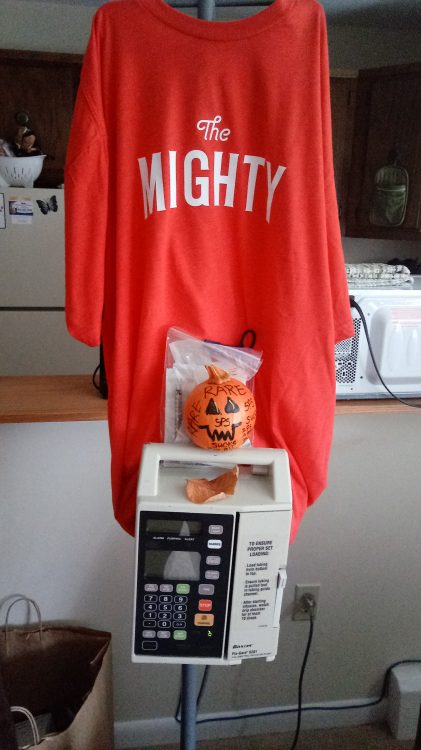
We all lose adult rare disease warriors who were ill since childhood as they pass away. We all know they and our children deserve infinitely better.
Our greatest successes, breakthroughs in rare disease treatments and research, manifested thanks to the mutual kindness and the labor of love of advocacy between parents who fight for their children with rare disease, rare disease patients and rare disease specialists. We amplify the astonishing courage we all carry and exhibit every day. We soothe and abate the terror and fear we face in the grip of rare disease when we maintain our friendships, our strengths and our networks in this literal rare world with all of the mutual grit we can muster!
We want to hear your story. Become a Mighty contributor here.

